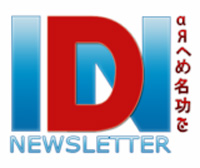|
Tina
Dam, ICANN's senior director for IDNs, said,
"Our work on IDNs has gone through numerous
drafts, dozens of tests, and an incredible amount of
development by volunteers since we started this
project." ICANN's president and CEO Rod
Beckstrom added, "This is only the first step, but it is an
incredibly big one and an historic move toward the internationalization of the
Internet."
People
in the IDN investment community have long believed
that making it possible for people around the world
to acquire domain names based on their own languages
will open up some major new financial opportunities
in the domain market.
To get
some insight into the possibilities we hooked up
with two veteran IDN domain investors, Gary Males
and Aaron
Krawitz to get their
take on ICANN's move. Males and Krawitz started IDNNewsletter.com,
which |

Tina
Dam
ICANN Senior Director for IDNs |
| they
say is the only platform exclusively devoted to
the resale of IDNs. They also run IDNTools.com
and two leading IDN industry blogs, IDNBlog.com
and IDNDemystified.
Males kicked off the conversation. |
Gary
Males: Unless youíve been living under a rock
lately, itís been hard to avoid all the noise ICANN has
been making about November 16th. Peter Dengate Thrush
(ICANN board Chariman) described it as follows: "This
is the biggest change technically to the Internet since
it was invented 40 years ago." So whatís all the
hoo-hah about, and how will it effect me? If itís
such a momentous milestone in the lifetime of the internet,
what should I be doing?
Before we get
into the implications of November 16th, let's cover some
basics. An IDN is
a domain name that contains at least one character not found
on a traditional English A-Z keyboard. It could be for
example an accented French character, or maybe characters
that look nothing like the English alphabet, for example
Japanese or Chinese characters.
|

|
Question:
Is there a demand for IDNs?
Gary
Males: ICANN certainly thinks so, and all
their research backs this up. Itís hard for us to
imagine having to navigate through the internet with
English only domains, but had the internet been
invented in
China
, and we all had to navigate using Chinese
characters only, we would probably understand the
inconvenience.
Question:
What is the biggest misconception about IDNs?
Gary
Males: The biggest myth I see quoted is
that domainers ďdonít like or donít know IDNs,
because they prefer dot com domainsĒ The
thing is, we all know dot com is king, and IDN
domainers know this too Ė but the thing is IDNs
are dot com too! An example would be イケア.com.
This is Japanese for IKEA, and Ikea uses it
today.
|
Question:
IDNs have been around for some time, but theyíve never
really taken off have they? Some think itís just hype, do
they not?
Gary
Males: Yes, IDNs
have been around since 2000, and approximately 1 million
are registered today, but there was a heavy reliance on two
organizations to enable them to work; Microsoft and ICANN.
These two organizations as we know can move at a snail's
pace, so yes itís been a long journey, and much of
what you have seen and may have interpreted as hype was
simply people trying to second-guess when these
organizations will deliver on their promises.
Microsoftís IE7
was the last mainstream browser to enable IDNs in 2007, and
ICANN is finally entering their final leg of a 9-year
marathon.
Question:
So how would you describe what happened on November 16th?
Gary
Males: November 16th
was launch day for the IDN ccTLD fast track process. There
are two parallel IDN activities running in ICANN, and both
of them deal with internationalizing the extension (the part
to the right of the dot). Although IDNs have been around for
nearly 10 years, they have only been half of an IDN
(the left of the dot). To complete the job, a full IDN is
what is needed.
|

|
Question:
What is the ccTLD
fast track process?
Gary
Males: The
ccTLD fast track process is a stand alone initiative
to release new IDN country code extensions.
This will mean inserting new country codes in the
root. Itís called the fast-track process, simply
because itís scope is narrow in that country
governments can only apply for a country code relevant
to their geography and therefore the process is void
of much of the politics and red-tape that are often
associated with gTLDs
Question:
Has there been much interest from country governments?
Gary
Males: ICANN
stated that 31 national governments representing 15
different languages expressed an interest in
participation of the fast-track process. |
|
ICANN
has put IDNs
on a "fast track" |
Question:
So what happens next?
Aaron
Krawitz: As of November 16th, ICANN is formally
accepting IDN ccTLD applications, and upon approval it will
be up to the ccTLD country manager to dictate timelines.
Russia
for example appears to be leading the rush with a very
aggressive publicity campaign (publicly backed by President Dmitry
Medvedev) and their timelines are aggressive too.
Question:
What is the likely release method, will it be a landrush?
Aaron
Krawitz: Each
country of course will have their own process.
Russia
is already accepting priority applications from their
government bodies up until November 25th. Whatever the
government bodies decide they need, will in effect form the
1st reserved list. The 2nd reserve list will be made up of
the applications that run from November 25th to March 25th
2010, and will be a priority period for trademark holders
and other federal and regional government organizations.
Domains not on
the reserved lists will then be auctioned through a Dutch
auction starting at 10 million Rubles (‾$300,000)
with all proceeds going to charity.
Question:
You mentioned there is an IDN gTLD process too?
| Aaron
Krawitz: Yes
there is, although currently it is caught up in the
red-tape of the wider intellectual property concerns
along with the wider English gTLD process, although
I personally think this wonít be the case for much
longer.
Question:
Why do you say that?
Aaron
Krawitz: The
IDN gTLD process is extremely important as it
provides for new IDN extensions at the top level
free of government and political influence and also
deals with enabling current gTLDs such as dot com to
have internationalized versions.
A
coalition by the name of Netchoice,
whose |

|
| members
include many household names such as Ebay, Skype
and Verisign have been very vocal on this
point as they collectively want consumers to be able
to navigate to full IDN versions of current dot com
websites such as Youtube dot com. |
As things
stand now, there is an unfair advantage being handed to
ccTLDs in the fast track process. So I would guess that any
further delays will force a creation of a new fast-track
process, but this time for IDN gTLDs.
Question:
As a domain investor, where do you see the biggest
opportunities?
|
Aaron
Krawitz:
IDN ccTLDs are at first glance very attractive, but
the restrictive nature and extensive reserved lists
will no doubt work against you and limit your
opportunities, and of course you have the same
problem all new extensions face and that is gaining
the consumers attention, which could take a very
long time (as we have seen with other gTLD launches)
I
think the most exciting space is in dot com, and I
say that for a few reasons. Since 2000 there have
been no restrictions, no reserved list; so today
single alphabet letters, geographical terms are all
out there unregistered or owned by someone.
Secondly,
once the inevitable happens and we see IDN
translated versions of dot com enter the root, then
you hit the ground running to leverage the worldwide
dot com brand. Then to avoid consumer confusion,
there will have to be some sort of aliasing from an
English dot com to |
|


|
ďanother
languageĒ dot com. This aliasing was originally
proposed in a Verisign white paper back in 2005, and
it means that current IDN dot com holders would be
granted rights to IDNs with a translated version of
dot com.
In
summary, there are a lot of moving parts, but the
last chapter in the IDN saga is finally being
written and it will make many rich.
Gary
Males: We
fully believe that many foreign internet users feel
trapped by not being able to use their own language,
and that is why we partnered to start IDNNewsletter.com.
Within seconds of the first newsletter we sold вода.com
("Water" in Cyrillic), which is a good
sign of things to come."
Aaron
Krawitz: We
also run IDNTools.com, and the leading IDN
industry blogs, IDNBlog.com and IDNDemystified.
We have always wished we could have been there in
the 1990s to buy up .com's while they were
undervalued and we believe that an equivalent
opportunity exists today with IDNs. |
*****
|

